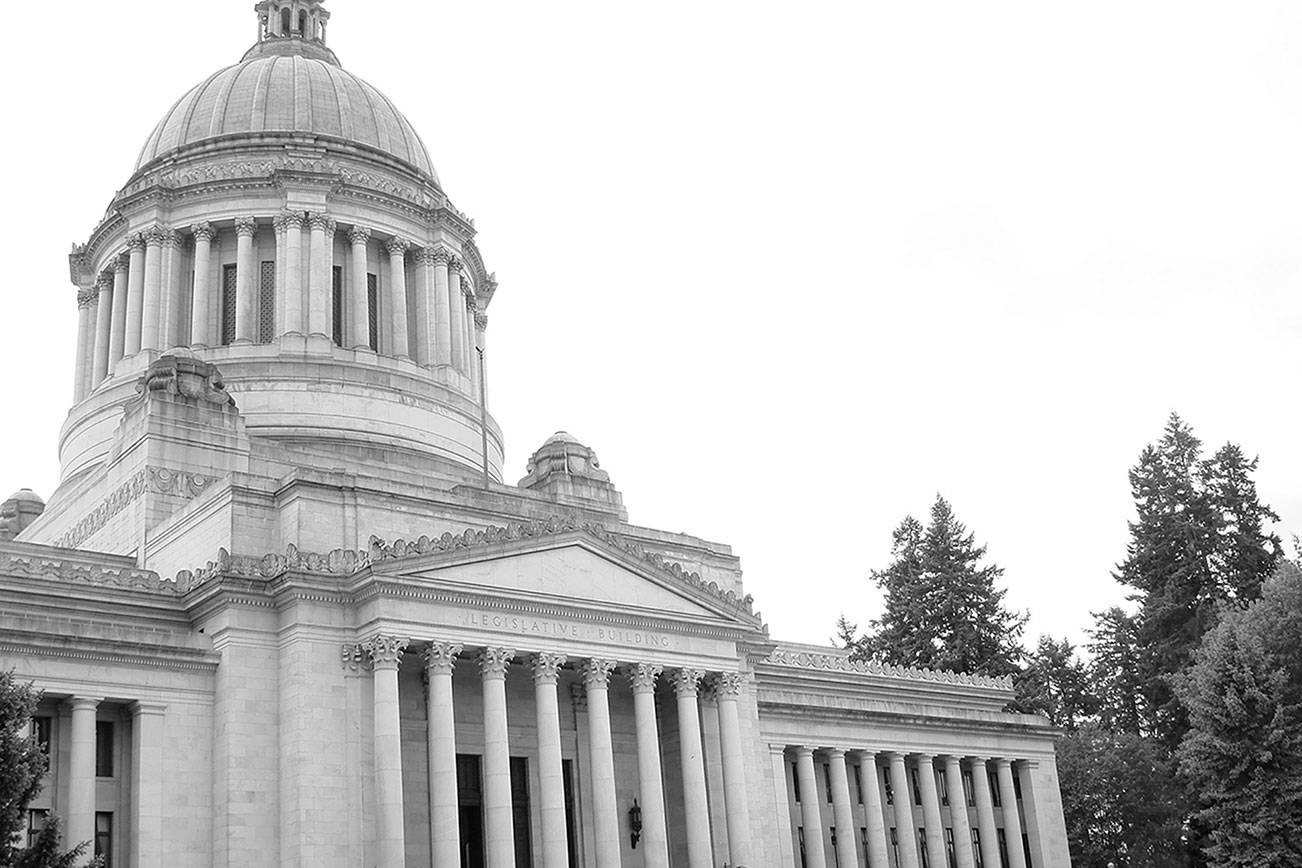Early in Washington state’s response to the coronavirus pandemic, it seemed a certainty that state lawmakers would be called back to Olympia to deal with the economic fallout of the shutdown the pandemic had forced.
Now, even as progress has slowed in the state’s phased Safe Start plans because of a resurgence in daily coronavirus infections — which now is easing after several weeks of increasingly bad numbers — there’s been less urgency among Gov. Jay Inslee and Democratic leaders in the state House and Senate who are more comfortable with a wait-and-see approach to an estimated $8.8 billion shortfall in revenue over the 10 months remaining in the current fiscal year and the 2021-23 fiscal year.
The justification for the foot-dragging isn’t unreasonable.
While Republicans chafed at the governor taking unilateral action, Inslee was able this spring to put a freeze on hiring of state employees and a halt on new state contracts and equipment purchases, and limit state employee travel. He followed that in June by canceling a negotiated 3 percent wage increase for some state employees and ordering furloughs for others, as outlined recently by Crosscut.
Those actions, coupled with opening the taps on the state’s “rainy day fund,” are expected to keep the state’s coffers above water until the Legislature would return for its regular 105-day session in January 2021, which conveniently is a budget year.
Inslee and others have cited a preference to wait until firmer numbers in the state’s next budget forecast are released next month and to see if Congress can deliver on some or all of the U.S. House’s pandemic relief package, passed in May, that could provide substantial aid to state and local governments. Unable to reach a deal among House leaders and White House negotiators, the U.S. Senate adjourned for its August recess without its own plan and won’t resume talks until next month.
At the same time, as noted in the Crosscut piece, there’s also a reluctance among legislators to take any action — at least before the Nov. 3 election — to either raise taxes or make unpopular cuts to programs that were funded this year and last.
That leaves prospects for a special session in doubt until after the election, if at all this year.
But there are two good reasons why the Legislature should convene for a special session, and do so as soon as possible:
One: The more that lawmakers cut now, the less drastic that cuts might have to be later. (The same goes for new revenue — the sooner a new tax is adopted, the sooner it begins collecting revenue.)
Two: There are areas of spending that must be protected from cuts if we are to have any hope for the shortest possible recession and a return to the strong economy — and the ample revenue — the state enjoyed at the start of the year before the pandemic hit.
The Washington Research Council estimated the level of cuts to the state budget necessary for this fiscal year, depending on when cuts would be made. Making allowances for areas that the state Office of Financial Management would identify as protected, the state would have to cut 28 percent of its budget if action is delayed until March 1 of next year; or 16 percent by this Dec. 1; or 11 percent by Sept. 1.
Again, the same goes for any new revenue, the council’s brief finds: “To reach a target level of collections, a tax rate would need to be higher if applied over a shorter period.”
And because there are areas of the budget deemed protected from cuts by the OFM, such as Medicare, basic K-12 education, corrections and other areas, said Brian Jeffries, policy director for the Roundtable, that leaves other areas of spending open to deeper cuts, among them, higher education.
If there’s an “unprotected” area of state spending that will be crucial in an economic recovery, it is the higher education programs that prepare high school graduates for future careers. And more than just protected from significant cuts, those programs and institutions should be among the first in line to receive any investments made available by federal pandemic relief aid.
Key to recovery, reports the Roundtable and its education foundation, Partnership for Learning, will be an increase in the number of young adults who complete a post-high school credential, such as a college degree, but also workforce training in health care, construction, manufacturing and other career areas.
To take advantage of the expected demand for family-wage jobs in Washington state, the Roundtable and its education foundation estimate that at least 70 percent of high school graduates will need to complete a college degree or other post-secondary credential by age 26.
Even before the pandemic, only 41 percent of the state’s high school class of 2017 was expected to complete a post-secondary credential by age 26. That mark is even lower for Black (31 percent), Latino (30 percent) and Native American (18 percent) students.
To attain that 70 percent goal, especially during and after the pandemic, investments and commitments are needed to encourage post-secondary education for those still in public schools, reduce barriers to higher education and work with students to ensure they can complete those programs.
The pandemic has presented an extraordinary challenge to Washington state residents, businesses and public officials. Waiting in hopes of easier decisions could make confronting its economic effects even more daunting and delay recovery for the state and its 7.6 million residents.
Talk to us
Please share your story tips by emailing editor@kentreporter.com.
To share your opinion for publication, submit a letter through our website https://www.kentreporter.com/submit-letter/. Include your name, address and daytime phone number. (We’ll only publish your name and hometown.) Please keep letters to 300 words or less.

